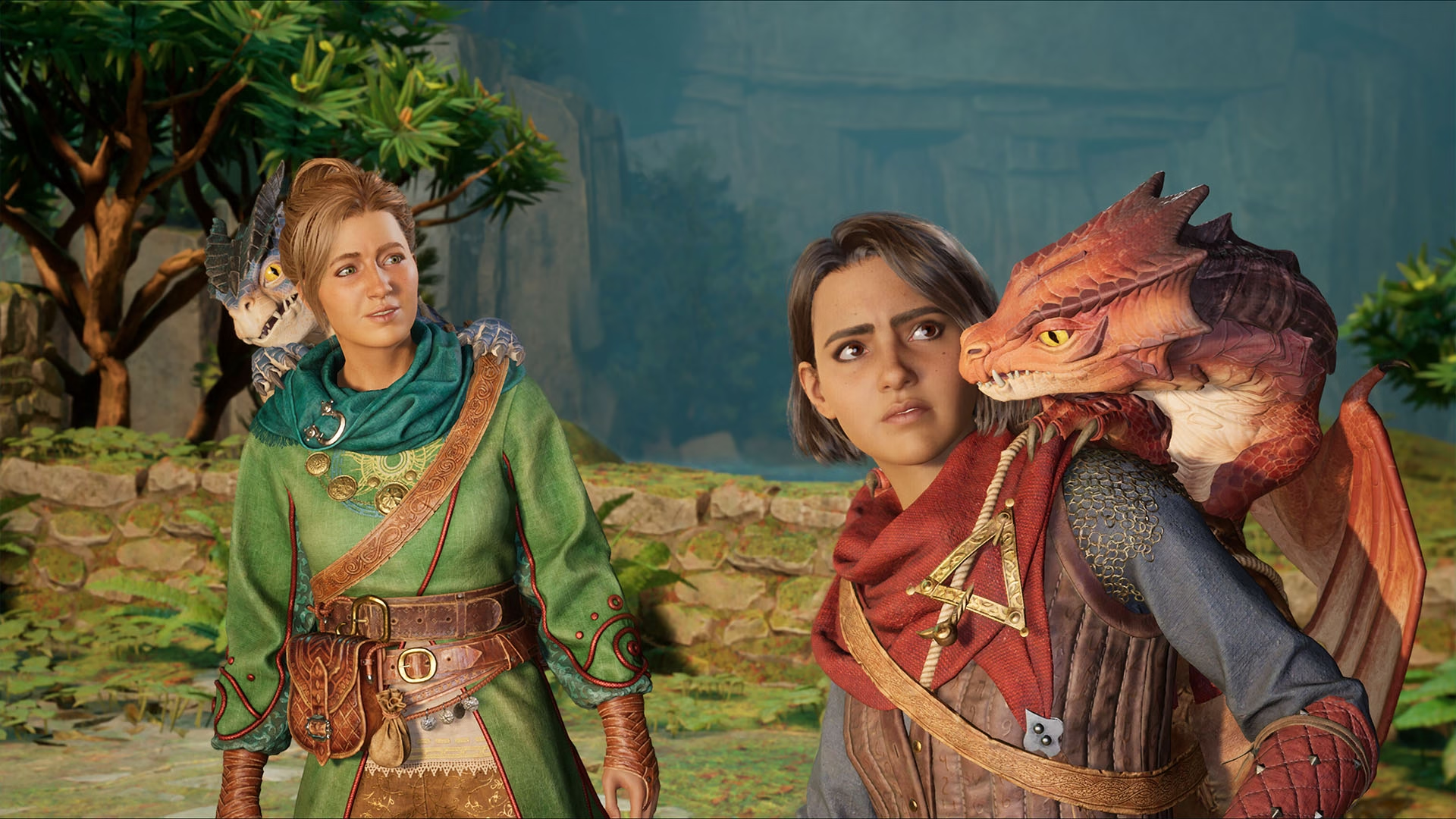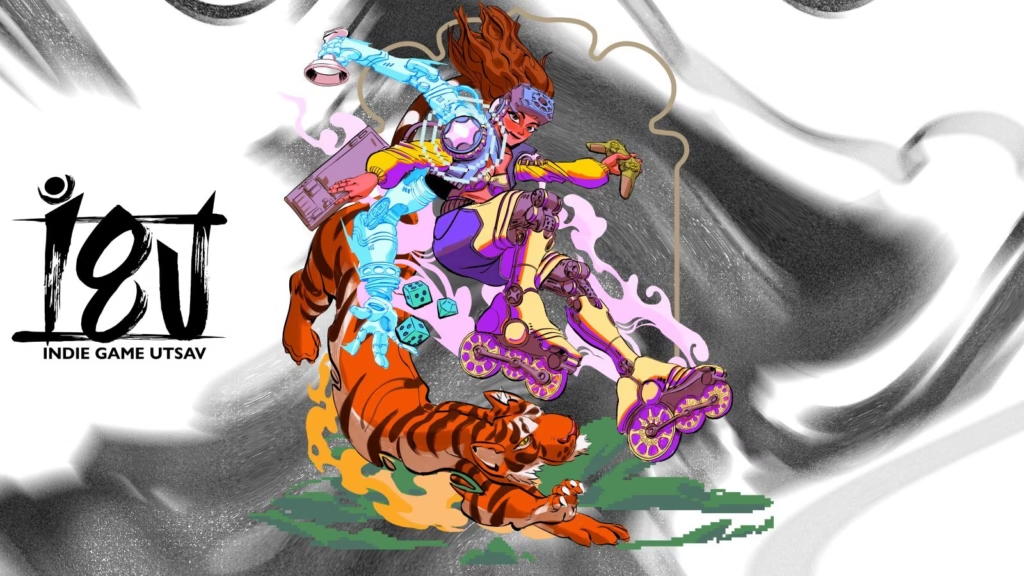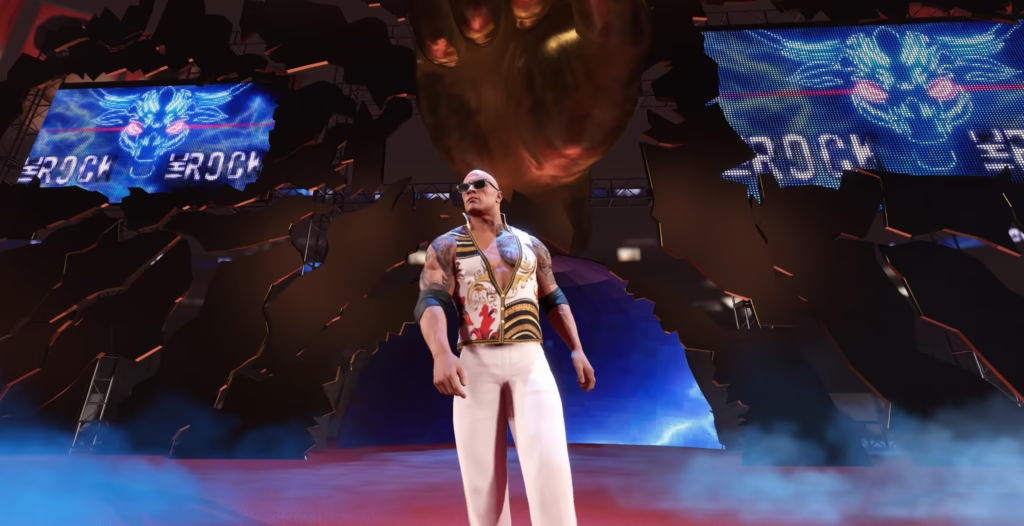There are only two things that possibly stand between Split Fiction and a Game of the Year gong in nine months or so: Death Stranding 2 and the cynical view that since Hazelight Studios won 2021’s Game Award for another co-op adventure (It Takes Two), history won’t repeat itself. On both counts, we shall see, but for now, let’s focus on the matter at hand. And that is that Split Fiction is one of the best games ever made. Here, it’s not only co-op games being referred to, but all games ever.
Hazelight Studios has made a name for itself with its extremely innovative take on how two people can play a videogame together, with such outings as the prison break-themed A Way Out and the marriage counselling-as-toys that is the aforementioned It Takes Two. Prior to all this, game director Josef Fares had enjoyed a deal of success with Starbreeze Studios’ Brothers: A Tale of Two Sons. It’s fair to say that the director and his devs have a degree of pedigree when it comes to this format. And with Split Fiction, the studio takes on a premise as unique as any it has worked on in the past.
The game is a co-op action-adventure game that blends sci-fi and fantasy genres. Players control two aspiring writers — Mio of a sci-fi persuasion, and Zoe, a fantasy aficionado — as they escape a simulation that merges their own stories. But before we get into all that, it’s only appropriate to do a ‘split review’ to properly reflect on and make sense of this game. In other words, since two people played the game together in couch co-op, it makes sense for the pair of them to review it too.
First impressions
Karan Pradhan: I’d played It Takes Two and a bit of A Way Out in the past, so I had a vague idea of the sort of co-op to expect — moments of adrenaline-soaked action interspersed with puzzles (logic-based, timing-based and more), a bit of basic combat and plenty of reliance on the other player. This time around, I was a lot more hooked by the premise; the meshing of sci-fi and fantasy worlds via the vehicle of two aspiring writers’ efforts to get published seemed both a unique proposition and a potentially great time.
Chirmi Krishna: To be honest, I had low expectations, mainly because it was a co-op. And while it can be fun to share a game with someone, it can also get gimmicky and repetitive with the same co-op mechanics being used at different levels, just treated differently.
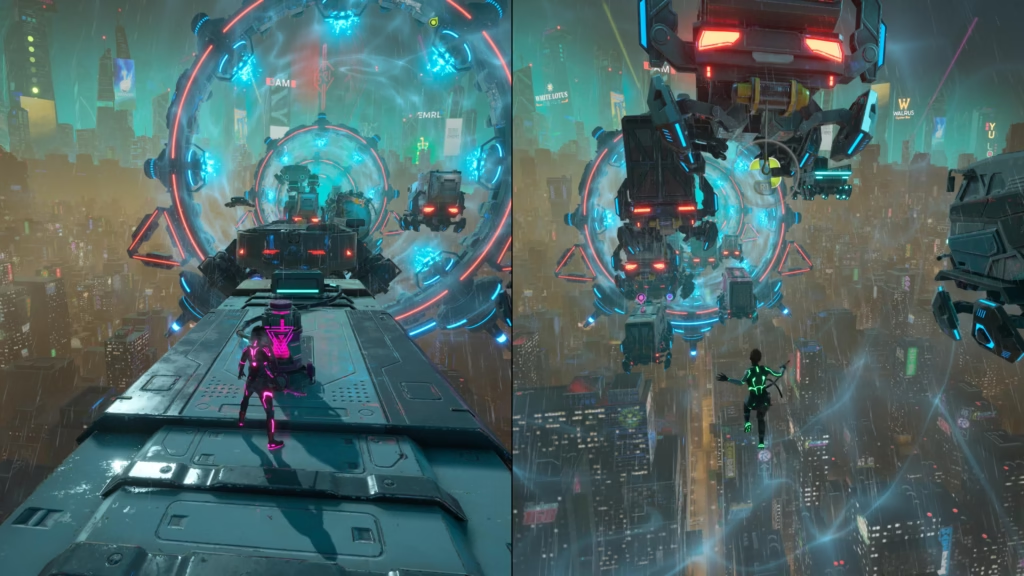
Karan: My general experience with co-op games on average has been that they’re fun in short bursts. Take something like Overcooked, for example. It’s intense, embodies all the best practices of good co-op play (simple gameplay, smooth difficulty curve and scope for plenty of yelling and screaming at the screen and one another) and is a lot of fun. But you can’t (well, I can’t, at any rate) keep at it for very long. There’s a distinct feeling of fatigue that kicks in. With Split Fiction (much like It Takes Two before it), I noticed quite early on that the game’s pacing was more in line with an action adventure game than a co-op title.
Chirmi: For me as well, the game was not what I was expecting at all. Sure, the premise was exciting to start with, but I was immediately interested in how they would maintain the characters’ personalities consistent with the worlds they had created throughout the game, without lapsing into clichéd portrayals of a sci-fi person versus a fantasy person.
Down to brass tacks
Chirmi: I should point out that while players can swap between characters, I chose to play as Zoe for the duration of the game. I picked her (and stuck with her) because of my love for fantasy and because I was quite curious to see how her arc would be different from Mio’s, since we were playing the same game.
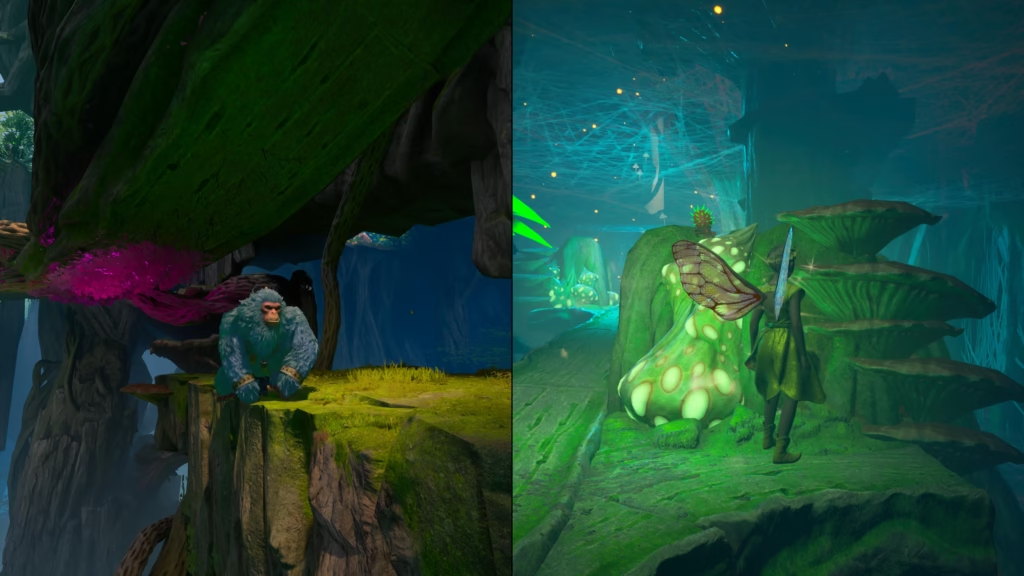
Karan: So there was the interesting premise (a critique of AI’s entry into the creative industry), intriguing teasers and trailers, and the fact that the studio has a track record with such games. But, the proof of a game is in the playing, and it was during the first hour — maybe less — that I felt Hazelight was onto something special here. Not only did it look fantastic, but contributing greatly to Split Fiction’s brilliance was the fact that gameplay was ever-evolving, and as Mio, I got to use some pretty cool tech and powers. From level to level, basic traversal was similar, but your abilities kept changing. And like the abilities, the challenges too were evolving simultaneously. And on an overall level, it seemed like I was playing a different game with every passing chapter.
Chirmi: Different, but in a coherent way, if that makes sense. The gameplay and the story complimented each other so seamlessly through every twist and turn that it became really easy to be Zoe, to get in her head — which I suppose I was in. I admit, I was a bit jealous of the weapons/gear Mio got to use, but that’s just another example of how well the story was integrated into the gameplay. That little jealousy from Zoe, a little bit of competition — I felt it.
Karan: Without spoiling things too much, Split Fiction is laid out as a small number of main chapters that sees us enter a Mio story, followed by one by Zoe and so on. Within each of these is a sprinkling of Side Stories — short chapters (based on one of the writers’ early stories) that range from the whacky to the wonderful, and the heartwarming to the downright bizarre. For instance, one level saw me as a pig with the power to hoist myself skyward via my own petard. True story. These served as a great palate-cleanser from the main story.
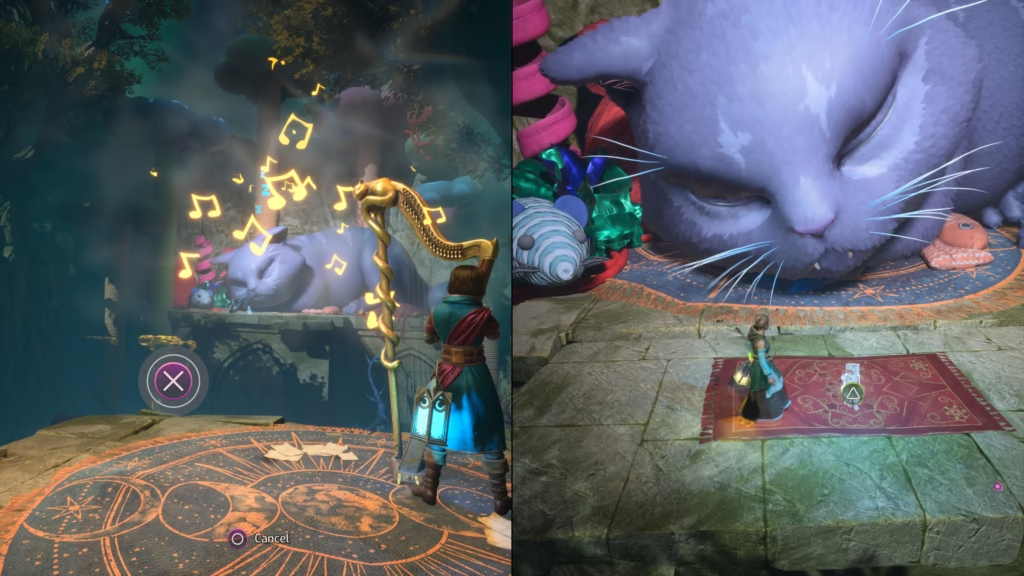
Elevating the experience
Karan: Superior storytelling and gameplay are great attributes to possess, but they really turn into gaming magic when the developers practice restraint with all the tools at their disposal. There was plenty of scope for the game to have been made more difficult or artificially elongated by throwing in longer fight sequences, extending high-speed chases or increasing the number of rounds in boss battles, but Split Fiction needed none of that. Every segment of every section felt like it had been timed down to the last second to ensure that there was no sign of player fatigue.
Chirmi: I don’t know about all that, but this is the most fun I’ve had playing a game. The attention to detail on the characters, the pacing, the inventive gameplay, the stunning worlds, changes in perspectives, the imagination and creativity in the side quests — everything was a concerted effort to maximise fun. Not a single boss battle felt tiresome; there wasn’t a single moment in the game which felt like a grind. Never a dull moment, this game was full of surprises. I’m gushing, but isn’t that quite telling too?
Karan: I also enjoyed the fact that the developers have created a game that provides something of a challenge for players of all experience and skill levels. For the more inexperienced bunch, the jump, double-jump, dash (and air-dash) that form the staple of the game are easy enough to pick up, and frequent checkpoints mean you never have to track back too far. Furthermore, the accessibility options allow players to unlock a feature that lets them skip to the next checkpoint, just in case they’re stuck. For seasoned players, it’s the boss battles, some of the puzzles and the obscure trophies that form most of the challenge. And then there’s that glorious finale that will likely be talked about for years to come. I won’t go into it, but it’s something you simply have to experience for yourself.
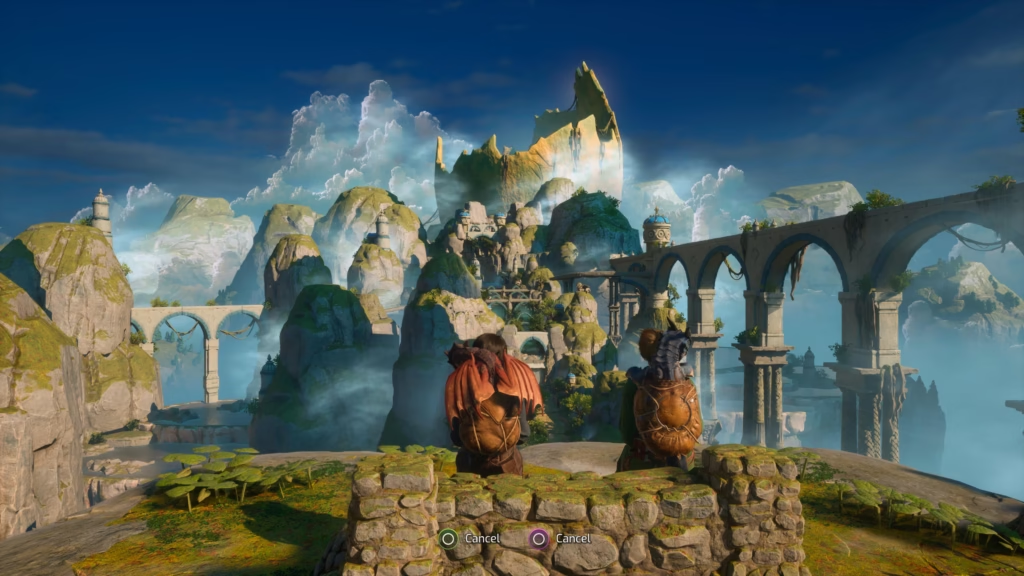
On the other hand…
Chirmi: It is an ambitious game, it delivers, the world-building is full of spectacular details, and players will enjoy this game. But if I had to split hairs, I would say the one thing that I missed was an emotional crescendo. What I mean is that the payoff for this hero’s journey was a bit muted.
Karan: Perhaps, and I’m also nit-picking here, a bit of the writing could’ve been tightened to bring the emotional parts of Mio and Zoe’s tales a bit more front and centre, but then that might’ve been a very different game. That said, there’s a possibility that the writers wanted to keep things light and breezy, and so opted against loading up the story with massive emotional beats that may have distracted from the gameplay, which is the heart and soul of Split Fiction.
Chirmi: What I took away from it all was the story of an unlikely friendship between two opposing personalities. Maybe the devs could have taken opportunities to deepen that story and show the sharing of real moments between the two — moments that brought the pair closer together. But honestly, it didn’t matter. I enjoyed their banter and their blooming friendship throughout the game — it was a lot more real than some other representations of female friendships.
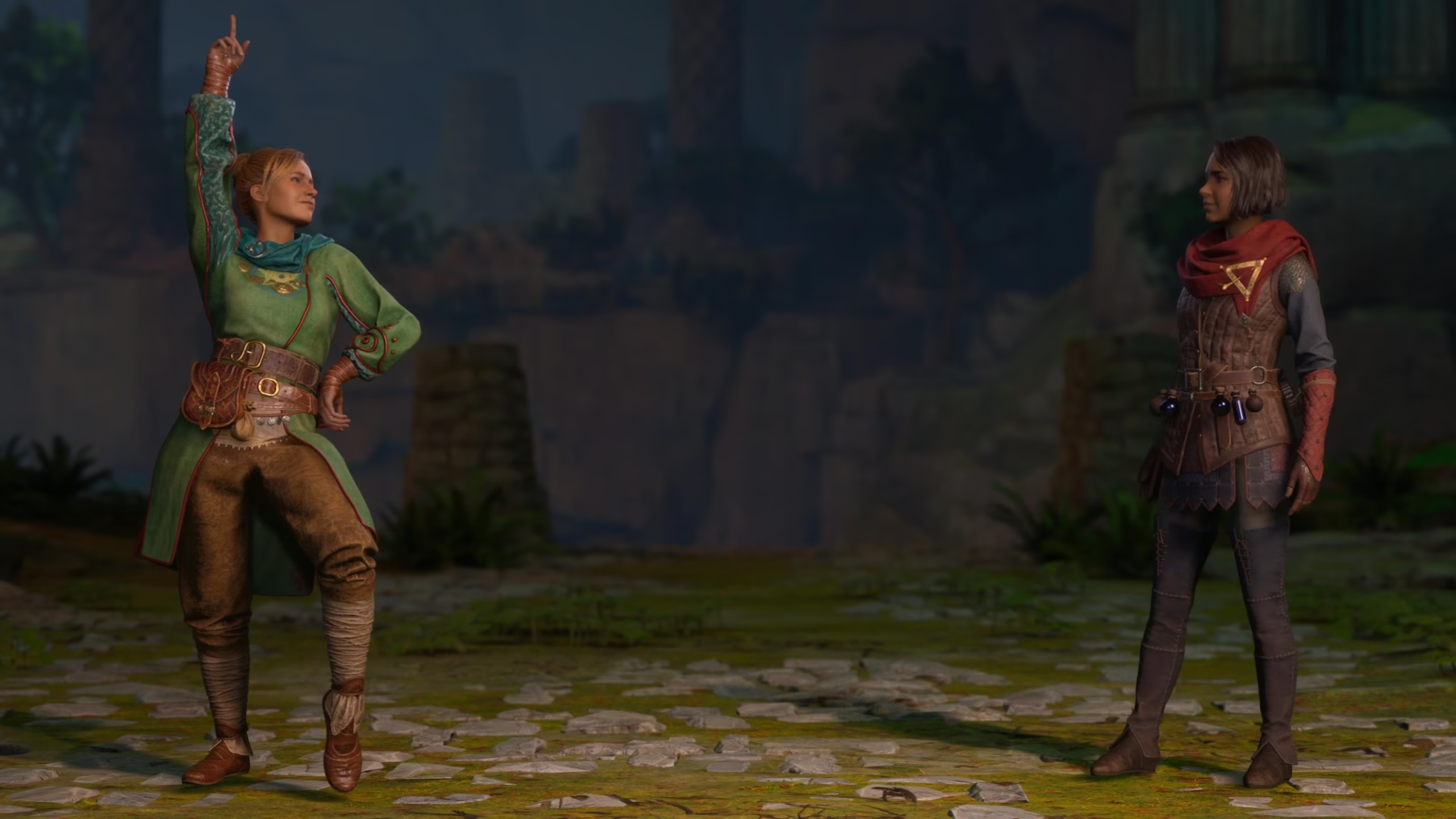
In closing
At the 2024 Game Awards, game director Fares had announced his upcoming game with a brief and memorable intro in which he proudly described it as “some next-level shit”. And he wasn’t wrong. The game channels a tonne of genres, references a load of different games, sports some truly magnificent visuals and sets it all around a breezy story told through two likeable characters. But it’s the manner in which it is able to engage gamers of all levels of competence, and encourages them to have fun, that is most remarkable and endearing.
There are a number of games that stay with you for a long time because of the story, the gameplay, or simply the treatment. But there’s a much smaller number of those that stay with you for all these reasons, plus the experience you had playing it with someone else. This is something that Split Fiction is able to nail seemingly effortlessly. That so much thought and consideration has gone into prioritising the players’ experience is heartening, but also represents everything that makes gaming such a delight. And that is particularly true in the current world of microtranscation-heavy, iterative and damn-near cynical game development we currently inhabit.
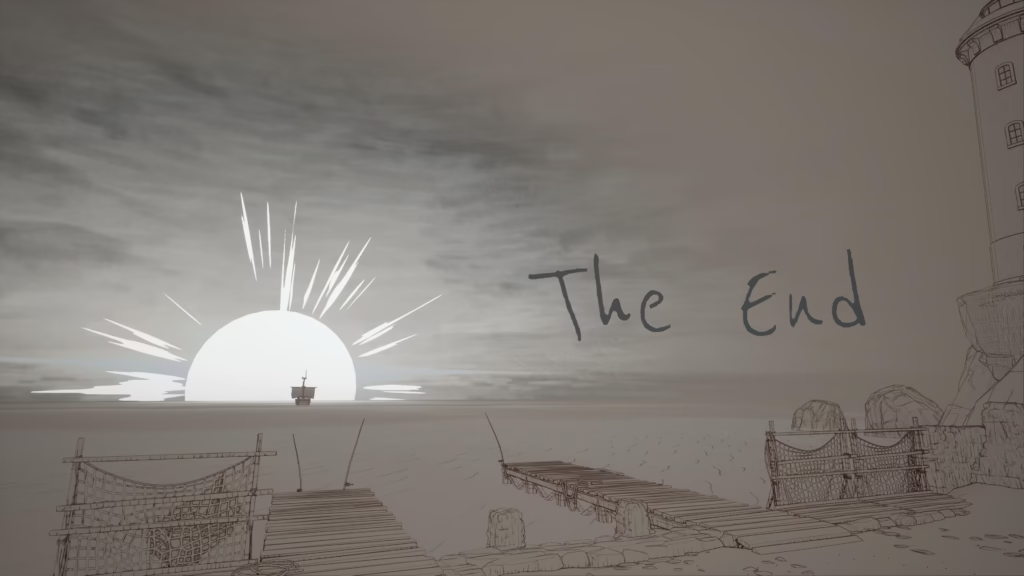
Game reviewed on PlayStation 5. Review code provided by publisher
